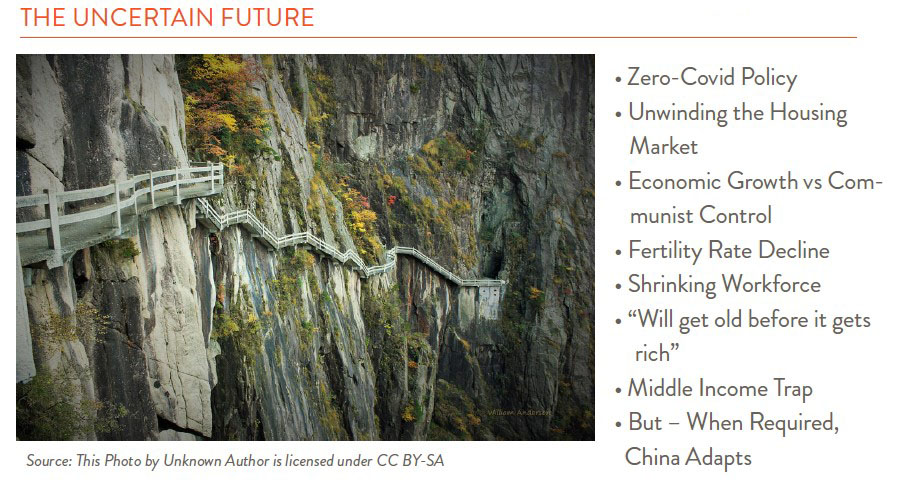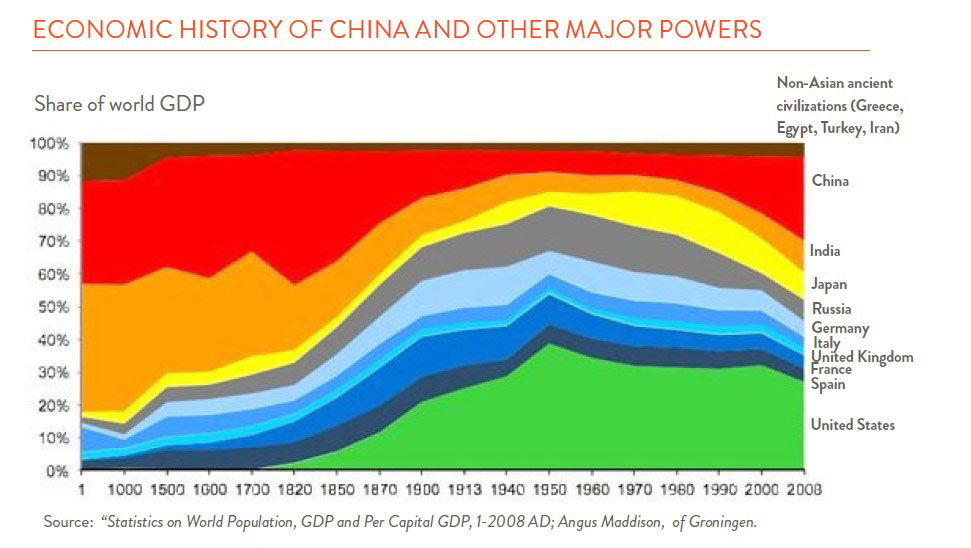Two thousand years ago China and India were the world’s largest economies. As recently as the early 1800s China was still the world’s largest. The final one hundred years of the Qing Dynasty, however, brought the country to its knees, and it was not until the ascension of Deng Xiaoping in 1978 that rapid growth developed again. And rapid it has been. China has lifted more people out of poverty (800 million) more quickly (over just 40 years) than has ever been done before.
Now comes the hard part. Xi Jinping faces serious problems today (see below). Covid and the housing crisis are the immediate ones. China cracked down hard on Covid in 2020 and was successful in containing the outbreak. The zero Covid strategy since, however, has caused serious economic disruption. How do they get out of this? If they open the economy, they risk a Covid explosion and “loss of face” apropos the two-year government policy. If they do not open, the economy will continue to lurch from one lockdown to the next.

The housing issue is equally problematic. Construction has contributed significantly to China’s growth and consumers have benefitted from flipping apartments, using the profits to spur domestic spending. Now everything is working in reverse. Developers are defaulting, apartment owners can no longer sell at a profit, and buyers who paid in full for still-to-be-built apartments are refusing to pay their mortgages. The government must thread the needle, making sure that paid-for apartments are completed while at the same time reining in the past excesses of developers.
China’s one-child policy was lifted in 2016 but the birth rate is still well below the number necessary to keep the population growing. Just like in the U.S., it is expensive in China to raise children. Many urban couples are perfectly content now with one child. It is estimated that China’s population will begin falling by 2025, and the working age population has already peaked.

The government’s recent emphasis on state industrial policy has hurt the private sector, which has been the principal source of employment growth. Entrepreneurs like Jack Ma of Alibaba were, like Icarus, seen as flying too close to the sun (the power of the Communist party) and have had their wings clipped. And finally, there is the “Middle Income” trap. Many countries have grown by emphasizing low-cost manufacturing and exports. But few have been able to make the jump to fully developed status. This requires higher value-added production, innovation, and technology. Xi Jinping is wrestling with this challenge today. China’s growth rate, now at stall speed, must be a concern to all of us because of the country’s outsized influence on the global economy. But don’t count them out just yet. China has faced curves in the road before and adjusted. As Deng Xiaoping said, you “cross the river by feeling the stones.”